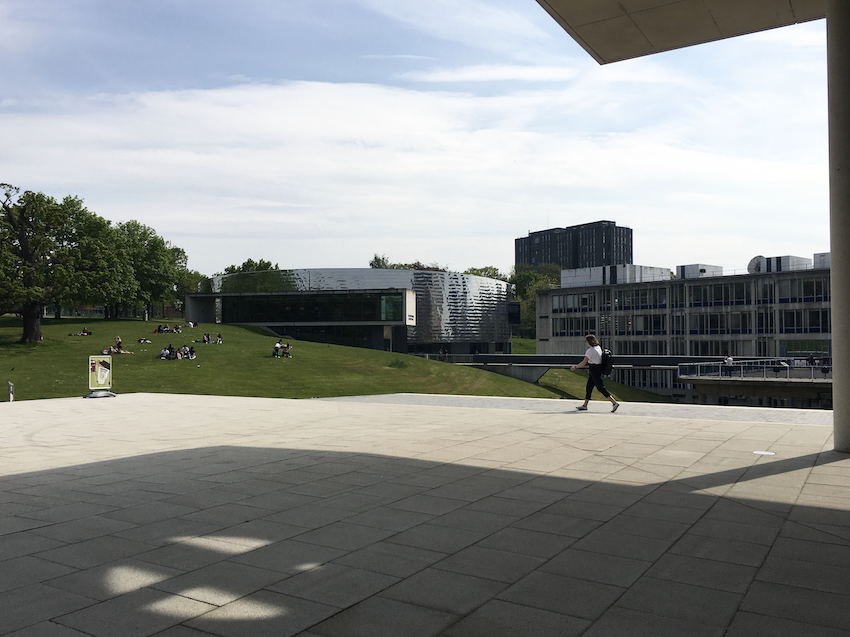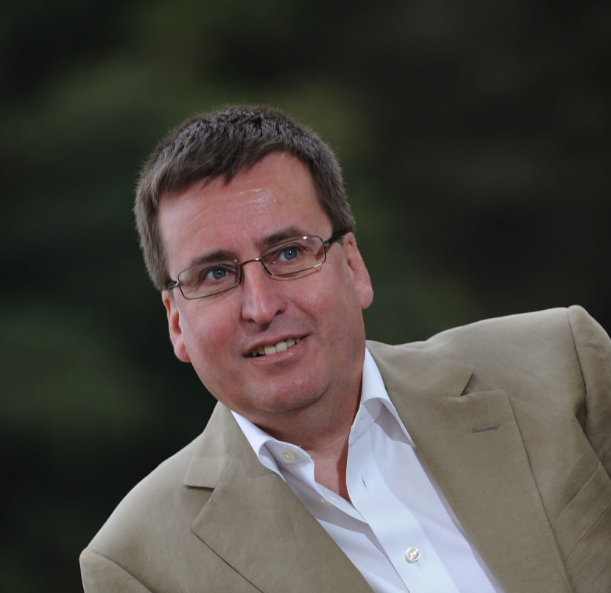


Alderney man and tech pioneer Nigel Roberts is to be awarded with an honorary doctorate from the University of Essex.
The honorary doctorate – awarded by the university to “outstanding figures in the arts, sport, technology, science and business sectors” - recognises his achievements as a computer scientist, most notably his pioneering work on computer games and the Internet Domain Name System.

Pictured: Mr Roberts is himself an alumnus of the University of Essex, where he graduated from with a Bachelor of Science (BSc) in Computer Science.
During his time at university, Mr Roberts was part of a group of students who conceived and subsequently developed the world’s first multi-user computer game, using a system known as multi-user dungeon (MUD). Many of today’s online multi-user role-playing games were developed using this system.
Mr Roberts, who describes himself as “one of the people who keep the Internet working”, has also done highly-influential work in the Channel Islands. In 1996, he founded the Island Networks group of companies, which created the .GG and .JE top level domains for the Channel Islands. The group remains responsible for the registration and servicing of domain names for local websites.
More recently, Mr Roberts served as a Director on the Internet Corporation for Assigned Names and Numbers (ICANN). ICANN is a not-for-profit organisation based in the US which is responsible for coordinating the maintenance of databases relating to Internet namespaces and number spaces, for example: the Internet Domain Name System. It was a role Mr Roberts held from October 2018 until October of last year.
The University of Essex particularly commends the important work which Mr Roberts has done with the corporation to “keep the Internet secure, stable and interoperable” in their official announcement of this year’s honorary degree recipients. Additionally, Mr Roberts was a participant on the 1997 forum which led to ICANN’s initial creation.

Pictured: Mr Roberts has lived in Alderney since 1997, and served as an Alderney representative in the States between 2002 and 2003.
Mr Roberts is a Chartered Engineer and IT professional, a Fellow of the Chartered Institute for IT, and in 2008 he gained a Law degree (LLB) from the Open University.
Additionally, he is on the board of directors for the Alderney Broadcasting Company, which runs the local radio station QUAY-FM 107, on which he presents a weekly music programme.
"To say I’m honoured by the University’s decision is an understatement”, said Mr Roberts in response to the news of his nomination, “I’m very much looking forward to returning to the Colchester Campus for the summer graduation ceremony."
The University of Essex seeks to honour people with doctorates for “their varied contributions to learning, creativity and knowledge, to human welfare and human rights, and to the building and maintaining of a fairer society”. Since 1967, the university have honoured more than 300 people with their prestigious honorary degrees. Previous recipients include Sir Tim Berners-Lee, inventor of the World-Wide Web; former Prime Minister Sir Harold Wilson; and Sir Keir Starmer, Leader of the Labour Party.
Mr Roberts will receive his doctorate alongside human rights lawyer, Lucy Scott-Moncrieff CBE; environmental journalist, Charles Clover; and Paralympian athlete and sporting ambassador, Anne Wafula Strike MBE.
They will receive their doctorates in July, in one of the first summer graduation ceremonies at the University of Essex since 2019.
Comments
Comments on this story express the views of the commentator only, not Bailiwick Publishing. We are unable to guarantee the accuracy of any of those comments.